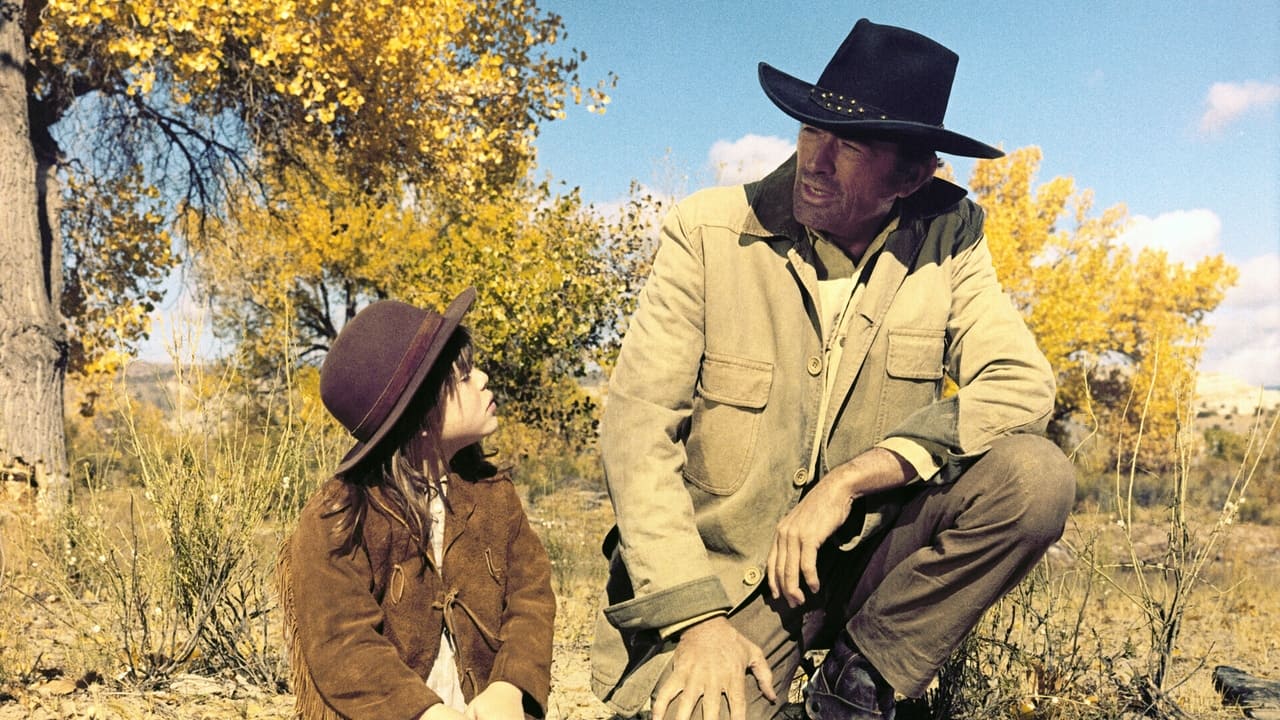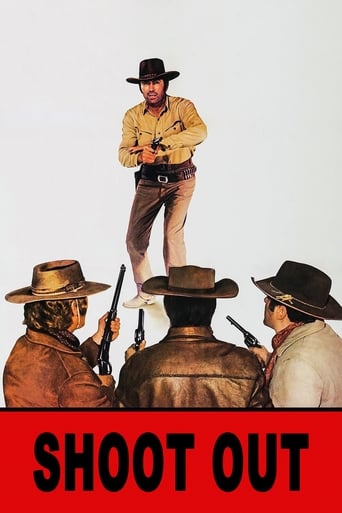

Slow pace in the most part of the movie.
... View Moreif their story seems completely bonkers, almost like a feverish work of fiction, you ain't heard nothing yet.
... View MoreA film of deceptively outspoken contemporary relevance, this is cinema at its most alert, alarming and alive.
... View MoreThis is one of the best movies I’ve seen in a very long time. You have to go and see this on the big screen.
... View MoreI have read the other reviews that talk about the director and the the similarities to other movies which are idiotic comparisons. This in no way resembles True Grit. The story line is different. The supporting actors were the worse actors I have ever seen and belong in movies that are below the B movie rating. Why they scream at each other when standing next to each other is idiotic. The ending was good but you had to go through a lot to finally get to the end. There were too many gaps of things that happened. It is a feel good movie if you like to see the villain die in the end.
... View MoreHenry Hathaway, a man who knew how to shoot scenery, apparently forgot how to make a decent movie with 1971's Shoot Out. This quickie flick, destined for the NBC Saturday Night Movie about 10 minutes after its theatrical run, has Gregory Peck being peckish, about a minute of James Gregory being the baddie that double-crossed Peck, Robert F. Lyons as the psycho gunslinger hired by Gregory, and 7-year-old Dawn Lyn as the cutesy, foul-mouthed little 'un dumped on Peck when he gets released from prison for a robbery gone sideways.You also get the startle of seeing a hooker's slobber-covered boobs in the saloon's back room. And this thing got a GP?Hathaway's talent for lovely landscapes is lost on the viewer trying to translate the grammar-challenged westernese that spills out of everyone's mouth and with the grimacing from the scenery-chewing bad-guy behavior that would make anyone long for the quiet rationality of Richard Widmark's sociopath in Kiss of Death or the social responsibility of Andy Robinson in Dirty Harry.Just to show you how stolid Peck got toward the end of his big-star career, he gets the chance to have a heart-to-heart with a farm widow (a pretty, curvy actress named Patricia Quinn), and when she opens up to him about how lonely she is, how she drinks herself to sleep every night pining away for a man in bed, Peck doesn't kiss her or make goo-goo eyes at her, he grasps her head, and I thought, "My God, he's gonna check her teeth!"It's amazing how snarky one can get when watching a bastard stink- pot western.
... View MoreGregory Peck occasionally played ambiguous, morally conflicted characters in films like "Moby Dick" and "The Bravados", but rarely played outright villains, "The Boys from Brazil" being an exception. It therefore comes as something of a surprise to see Hollywood's Mr Clean here cast as Clay Lomax, a bank robber released from jail after serving his sentence. We quickly realise, however, that despite his murky past Lomax is to be the good guy in this movie. He is out for revenge on Sam Foley, his former partner-in-crime, who double-crossed him and attempted to kill him. He learns that Foley has never been convicted for any of his crimes and is now a wealthy and outwardly respectable rancher. Oddly enough, Foley is not the film's main bad guy either; his is a relatively small role. He has, however, learned of Lomax's release and has hired three young gunslingers to keep an eye on his former associate who he believes (correctly) will come looking for him. It is the leader of this trio, Bobby Jay Jones, who functions as the film's villain-in- chief. He and his fellow-thugs are under strict orders from Foley not to shoot or kill Lomax, but this does not prevent them from killing anyone else who crosses them or gets in their way. The title "Shoot Out" is a bit misleading as, although the film contains plenty of shooting, there is no single climactic "O K Corral"-style gunfight. (The novel on which it was based had a different title, "The Lone Cowboy").Peck's career went into something of a decline in the late sixties and early seventies; few of his films from this period are of top quality; "MacKenna's Gold" is another sub-standard Western from around the same time. Earlier in his career, however, he had made some excellent Westerns, notably "The Big Country" and "The Bravados", both of which can also be characterised as "revenge Westerns", although they deal with the theme in a rather more thoughtful way than "Shoot Out". "The Big Country" deals with a meaningless blood-feud between two families, neither of whom can remember who committed the original wrong which started the cycle of revenge. In "The Bravados", Peck's character might seem to have ample grounds for his campaign of revenge on the bad guys, but he later comes to regret his actions. "Shoot Out", however, is not in the same class. There is a misguided attempt to inject a note of sentimental humour; an important sub-plot involves Lomax becoming the guardian of a six-year-old girl named Decky who turns out to be his illegitimate daughter by his now-deceased mistress, conceived just before he went into jail. (Decky's peculiar forename is never explained; while watching the film I misheard it as "Debbie"). Now young Dawn Lyn was obviously an adorable child, but she was the sort of adorable child who would have been more at home in a sweet family comedy than in a hard-boiled revenge Western, and the scenes in which she appears do not blend in well with the rest of the film. Another thing I disliked was the treatment of Bobby Jay and his sidekicks. They are obviously intended to be evil, but are portrayed in such an exaggerated, cartoonish manner that they come across as simple pantomime villains and never really seem very threatening. This sort of thing was not unusual around this time; "Hannie Caulder" and "Will Penny" are two other examples of otherwise serious Westerns which suffer from a tendency to overplay the bad guys. Perhaps this was done here to try and offset the fact that Lomax, the supposed hero of the film, has himself been far from admirable. At one time the censors might have objected to a hero who was not only an unrepentant bank robber but also the father of an illegitimate child, but by 1971 the Production Code was dead and buried, and the protagonists of Westerns no longer needed to be 100% clean cut. It does, however, seem rather self-defeating to give your film a flawed hero and then to camouflage his flaws by exaggerating the villainy of his enemies. This was the penultimate film directed by Henry Hathaway; I must admit that I have never seen his last, "Hangup", and from what I can gather not too many other people have either. Two years earlier Hathaway had made the highly successful "True Grit" which had given John Wayne's career a new lease of life and had brought him his only Oscar. Tthe two films also shared the same producer (Hal B. Willis) and screenwriter (Marguerite Roberts) and had a similar theme in that they teamed an ageing male star with a young girl, although the character played by Kim Darby is rather older than Decky. The team were obviously hoping that they could do for Peck what they had done for Wayne, but to succeed in this aim they really needed a better vehicle than this one. 5/10
... View MoreDirector Henry Hathaway gets the most of his actors in this cowboy drama. After seven years in prison, ex-convict and aging gunfighter Clay Lomax(Gregory Peck)sets out on the trail with revenge on his mind. Lomax is in search of former partner turned adversary, Bobby Jay Jones(Robert F. Lyons). Bobby and his saddle pals seem to be out looking for fun...Lomax is looking for blood. Lomax may be a hardened man, but he shows his soft side when he becomes burdened with taking care of a cute young orphan girl named Decky(Dawn Lyn). Lyn seems to steal the movie with the banter between her and Peck. Another scene stealer is Susan Tyrell, who plays Alma the quirky ride-a-long with Bobby's gang. Others in the cast: Patricia Quinn, James Gregory, Rita Gam and John Davis Chandler. Not among the best westerns, but very worth while.
... View More